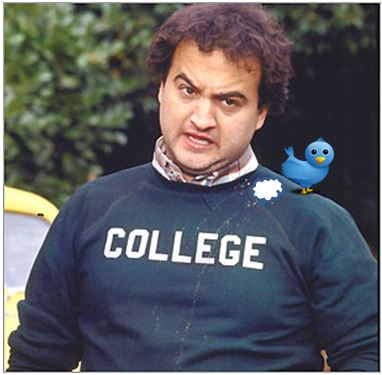I get invited to speak at a lot of colleges and there is a common theme I hear everywhere: How do they help their students succeed in the fast-moving digital marketing age?
Although I have seen vast improvements in the past two years, the fact is that the gap between current marketing degree programs and business reality is so severe it is downright depressing. I can count on one hand the number of undergraduate students I have personally met this year who I thought were prepared for an entry level marketing job.
There are three huge obstacles facing these programs that are robbing their PR, marketing, and journalism students of the educational experiences they need to compete in the job market:
1) Tenured professors who made their name in the non-digital era are finding it difficult, perhaps impossible, to re-invent decades of proven teaching material and adjust to the fast-moving marketplace.
2) In some cases, it may take up to two years to get a new class approved through an accreditation system
3) The field is changing so much it is difficult to create a stable curriculum that can conform to the needs of numbers 1 and 2.
How bad is the problem?
- One marketing professor told me that his department head demanded that he quit blogging and focus on publishing academic papers.
- In a recent presentation to the combined business and journalism faculty at a national university, the head of the advertising major faced me down with an icy glare and told me that social media is a passing fad with no relevance to the field of advertising.
- An exasperated father complained to me that his son wanted to pursue a career in marketing with a social media emphasis but could not find a college in his state that offered relevant classes, let alone a qualified faculty.
The overhaul of America’s education system is a very complex problem that I am not prepared to address here. However, I can point to one model that is working particularly well specifically in the marketing space.
I am a member of the faculty of Rutgers University and they have developed a system that is getting rave reviews.
First, they have created a program outside the “normal” accreditation process that can flex and move as the market changes. The classes and content may change every month as needed. These week-long seminars (offered in a variety of formats including online) focus on the hottest topics like digital marketing, social media marketing, marketing for non-profits, and marketing analytics.
Second, they use a team of nationally-known experts who are practitioners working in the field every day. This provides an unparalleled, real-time view of what works and what doesn’t based on up-to-the-minute examples.
Finally, these sessions offer “open enrollment” meaning anybody can sign up. Participants can receive college credit, continuing education credits, or simply a certificate for completion. Allowing people outside the university system to sign up keeps the cost reasonable and allows them to pay for the expert talent needed for the program. Another benefit is the incredible networking and learning that takes place by having students and business professionals sitting side by side.
This is an unconventional, entrepreneurial approach that would probably be rebuffed by most schools. It would upset tenured faculty. It will certainly create resistance from long-time administrators enslaved to a “system.” It challenges the idea that you need to enroll in a four-year degree program to get the expertise you need to excel in your job.
And yet, I believe connecting students and business professionals with practicing experts in an intense hands-on learning environment is the only way to stay relevant today.
Agree?
Interested in attending? If you register for a live or online session at Rutgers and use “grow” as the discount code, you will receive 10% off your tuition. I do not receive any financial benefit if you sign up. This is just a little gift to the readers of {grow}.
